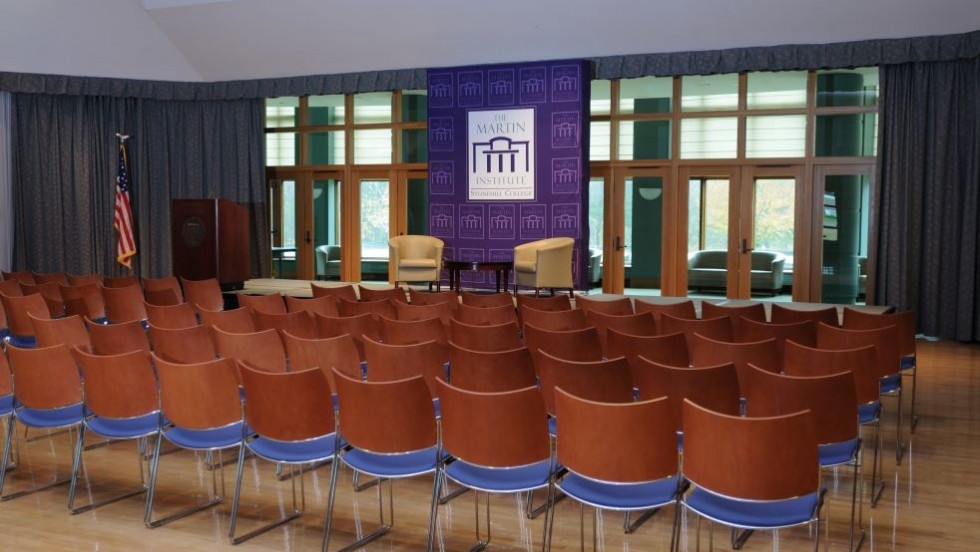Arts Journalism
Pulitzer Prize winner to visit Martin Institute, discuss famous museum robbery.
Located in Boston, the Isabella Stewart Gardner Museum is not only a popular destination for tourists interested in European, Asian and American paintings and sculptures. It is also the site of one of the most notorious art heists ever.
In 1990, two men disguised as police officers made their way into the museum after midnight one evening. They stole an estimated half billion dollars’ worth of art, including works by Dutch painters Rembrandt and Vermeer.
Though this case remains unsolved three decades later, it continues to hold the attention of true crime aficionados everywhere, including Pulitzer Prize-winning journalist Stephen Kurkjian. In 2015, the newsman, who covered the case for The Boston Globe, published a book on the theft entitled Master Thieves: The Boston Gangsters Who Pulled Off the World's Greatest Art Heist.
Kurkjian will visit Stonehill College on November 17 to discuss his reporting during an event sponsored by the Martin Institute for Law & Society. In preparation for his appearance, we reached out to him to chat about the case, interviewing criminals and his writing process.
What is the main lesson or idea that you want those attending your upcoming lecture to take away from your address?
With every talk I give on the Gardner case I try to achieve two goals—to inform and to motivate. This crime is framed by superlatives. It’s the largest art theft in world history. Masterpieces by Vermeer, Rembrandt, Manet and Degas were stolen. The crime was pulled off with brazenness, violence and guile. Yet, more than three decades later, none of the 13 pieces stolen have been returned, nor has anyone been arrested or even identified as a culprit. The Feds have chased every lead. They’ve even offered a no-arrest guarantee if whoever has possession of any of the artwork brings the paintings in, as well as a $10 million dollar reward for the return of the art.

What inspired you to write about the Isabella Stewart Gardner Museum heist? Why were you drawn to this case?
I consider it Boston’s last best secret—who stole the paintings, and why has a recovery so eluded the museum and the FBI? The more I reported on it the more curious I became. Ultimately, I saw it as a reflection of how much Boston had changed as interest in solving the case heightened yet old-world patterns in some neighborhoods maintained the secret of where the artwork might be hidden.
Your book features material drawn from interviews you conducted with members of organized crime. How did you get them to speak to you?
Very respectfully. I would always call their lawyers or trusted family members and tell them why I wanted to communicate with them. I would send the lawyers/intermediaries reasons why I thought the crime figure could help. Also, I explained to them that there was a multimillion-dollar reward that they could receive if their information proved invaluable. The most important phone call I received came from a past crime figure who had checked with another journalist about whether I could be trusted. The other journalist vouched for me, and it was the beginning of a week-long interview that provided me the book’s best break, the answer to questions about what would have motivated one suspect to get involved in such a daring crime.
When writing a book like Master Thieves, what sort of things do you need to do to get in the zone?
While I had a lot of background on the case because I had reported on it for a decade for The Boston Globe, I felt I needed to come up with new information to make Master Thieves a compelling read. It made for a hectic year, but I came up with some terrific new developments that I believe made the reporting fresh and illuminating.
This was the first book that I’d written, and my deadline was to finish the reporting and writing of it within 10 months. I gained a good pattern on the reporting and writing, but soon realized writing all day was not productive. A friend told me that since I had always worked in a newsroom, I should find a library with some private rooms where I could have the privacy that writing requires but with a minimal amount of human interaction. I found a nearby library that met those needs.
What advice do you have for student journalists?
Always ask yourself and discuss with your editors two basic questions. First, is the commitment of your time and the paper’s resources worth it? In other words, will a sufficient number of people be helped if you break this story? Second, can the story be gotten/proved by customary reporting methods like interviews, documentation and/or actual observation?
